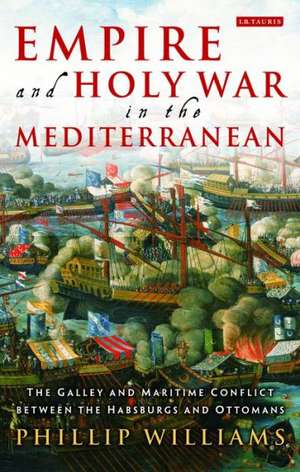Empire and Holy War in the Mediterranean: The Galley and Maritime Conflict between the Habsburgs and Ottomans
Autor Phillip Williamsen Limba Engleză Paperback – 14 mai 2015
Preț: 179.98 lei
Preț vechi: 220.44 lei
-18% Nou
Puncte Express: 270
Preț estimativ în valută:
34.44€ • 35.58$ • 28.67£
34.44€ • 35.58$ • 28.67£
Carte tipărită la comandă
Livrare economică 25 martie-08 aprilie
Preluare comenzi: 021 569.72.76
Specificații
ISBN-13: 9781784533755
ISBN-10: 1784533750
Pagini: 384
Ilustrații: 6 bw integrated
Dimensiuni: 138 x 216 x 30 mm
Greutate: 0.41 kg
Editura: Bloomsbury Publishing
Colecția I.B.Tauris
Locul publicării:London, United Kingdom
ISBN-10: 1784533750
Pagini: 384
Ilustrații: 6 bw integrated
Dimensiuni: 138 x 216 x 30 mm
Greutate: 0.41 kg
Editura: Bloomsbury Publishing
Colecția I.B.Tauris
Locul publicării:London, United Kingdom
Notă biografică
Phillip
Williams
holds
a
DPhil
from
New
College,
Oxford.
He
was
formerly
Lecturer
in
History
at
Bangor
University.
Cuprins
Table
of
Contents*IntroductionThe
Naval
BattleChusmaThe
Sea
WolvesThose
Esteemed
Dreadful
MonstersThe
Royal
ArmadaThe
Shadow
of
God
on
EarthDear
PrudenceThe
Lordship
of
the
SeaThe
Shift
to
the
MediterraneanThe
Problem
of
Holy
WarConclusion










